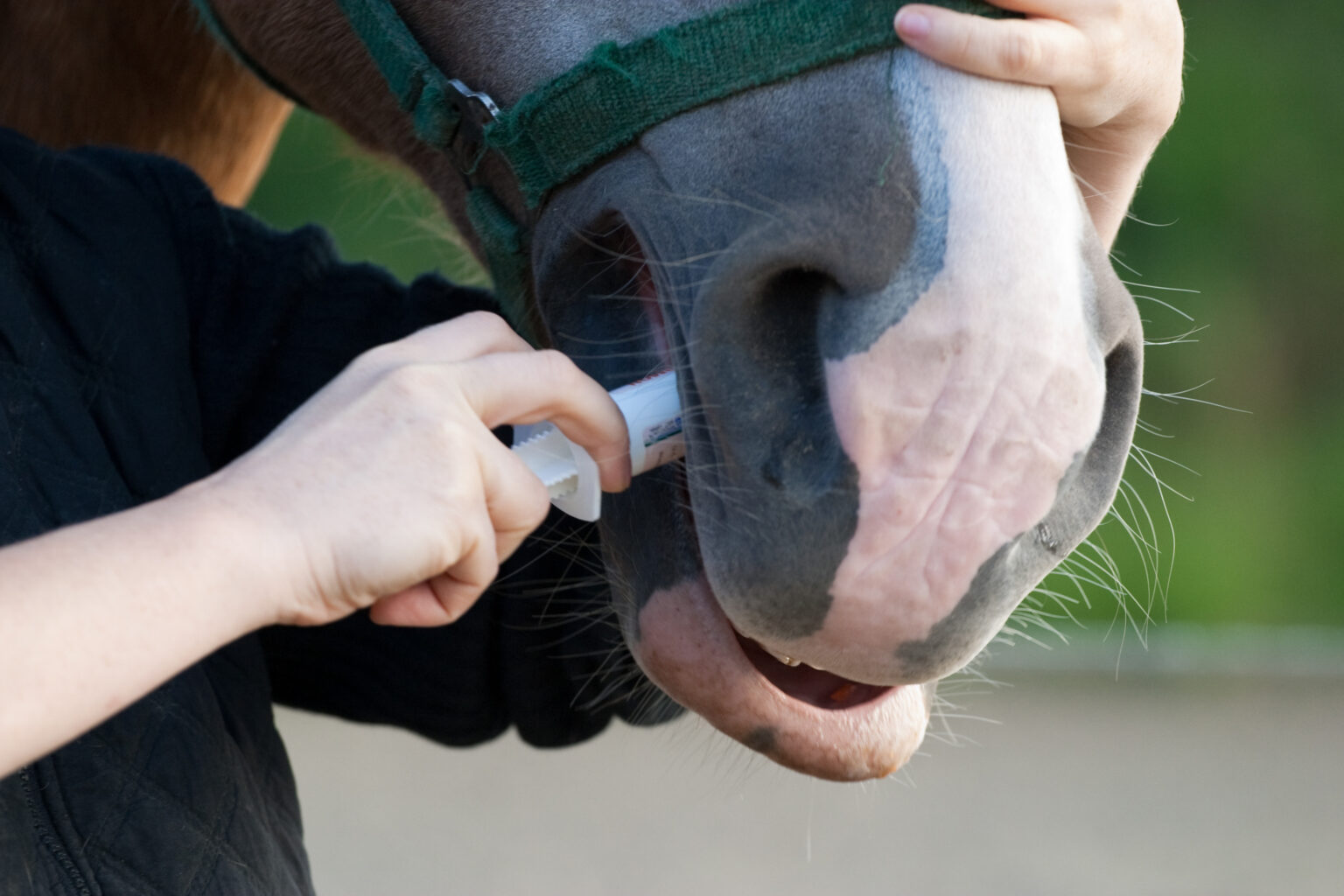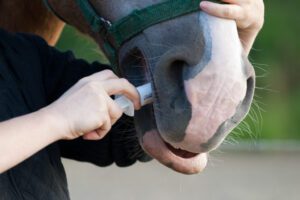Deworming Routine: Why Fecal Egg Count Testing Matters

Parasite control is one of the most important aspects of keeping your horse healthy, yet it’s also one of the most misunderstood. Many horse owners remember the old-school method of deworming every two months with a different product. But is that still necessary today?
In this post, we’ll explain how modern parasite control has evolved and how to protect your horse from the inside out.

Why Deworming Matters
Internal parasites (worms) can cause a wide range of health issues in horses, including:
- Weight loss
- Poor coat condition
- Colic
- Diarrhea
- Poor performance
- Intestinal damage
Even if your horse looks healthy, they may still be carrying parasites that affect long-term health and can spread to others in the herd.
The Problem With Over-Deworming
For years, horse owners were taught to deworm every 6–8 weeks, rotating between classes of dewormers. The intention was good — prevent a heavy parasite load — but over time, this approach led to a serious problem: parasite resistance.
Worms are now becoming increasingly resistant to most commercially-available dewormers, especially if used frequently and without proper testing. What will we do when today’s dewormers don’t work anymore, but there aren’t any new and effective products available?
What Does “Rotating Dewormers” Mean?
Rotating dewormers refers to alternating the classes of dewormers (anthelmintics) used to target different parasites. The main classes include:
- Benzimidazoles (e.g., fenbendazole)
- Pyrimidines (e.g., pyrantel pamoate)
- Macrocyclic lactones (e.g., ivermectin, moxidectin)
Rotating helps ensure that parasites don’t adapt to one particular type of medication. Furthermore, some active ingredients are more effective for certain types of parasites and their life stages than others. Rotation should always be based on actual parasite burden, not just a calendar. By deworming according to your veterinarian’s recommendations, you can rest assured that the proper worms are being targeted at the proper time of year and by the best product.
Modern Deworming: Strategic, Not Scheduled
Today’s best practice is called targeted deworming or strategic parasite control. Instead of deworming all horses the same way, we tailor the schedule based on:
- Fecal Egg Count (FEC) tests
- Age and health status
- Risk factors (pasture size, number of horses, climate, etc.)
Why Fecal Egg Counts Matter
FEC tests help determine how many parasite eggs your horse is shedding. Some horses are “high shedders,” while others naturally resist parasites and may not need deworming as often.
Testing allows us to:
- Avoid unnecessary treatments, often saving you time and money
- Slow the rate of parasite resistance
- Determine the most effective anthelmintic based on your horse’s FEC and environment
When Rotation Still Matters
Even with targeted control, rotating dewormers during key times of the year can help combat specific parasites:
- Spring: Target strongyles and roundworms
- Fall/Winter: Focus on bots and encysted small strongyles
Working with your veterinarian ensures you rotate intelligently, not randomly.
Foals and Young Horses
Young horses are more vulnerable to parasites, may need more frequent deworming, and are affected but different types of parasites than adult horses. They often benefit from a structured deworming plan that includes rotation and regular FECs after weaning. We work with you by evaluating the foal’s environment, susceptibility, and the mare’s deworming history and parasite load— to ensure your newest herd member is set up for a healthy start.
Contact Us Today About Your Horse’s Deworming Protocol!
Deworming is no longer a one-size-fits-all task. A smart, science-based parasite control program — with strategic rotation guided by your veterinarian — is better for your horse’s overall health and for preventing resistance that threatens the entire equine community.
At Countryside Equine Hospital, we offer customized parasite control programs tailored to your horse’s lifestyle, age, and environment. Call us at (770) 787-4711 or Book an Appointment today! From fecal testing to product recommendations, we take the guesswork out of deworming
Recent Posts
About Us
For over 30 years, Countryside Equine Hospital has been a trusted partner for horse owners across Covington, GA. Founded by Dr. Carter, our practice began as a small operation in a garage and has grown into a state-of-the-art equine and small animal veterinary facility. Today, we combine our legacy of Southern hospitality with advanced equine medicine, offering services tailored to meet the unique needs of every horse, from top-performing athletes to beloved pasture companions.
